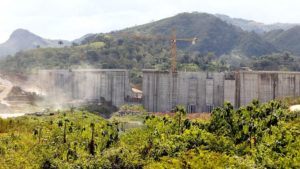 Following community protests by the indigenous Ngobe communities, Panama’s environment agency ANAM suspended the Barro Blanco hydroelectric yesterday. The decision was taken because of breaches of the national environmental impact assessment requirements, including shortcomings in the agreement with the locally affected indigenous communities.
Following community protests by the indigenous Ngobe communities, Panama’s environment agency ANAM suspended the Barro Blanco hydroelectric yesterday. The decision was taken because of breaches of the national environmental impact assessment requirements, including shortcomings in the agreement with the locally affected indigenous communities.
The suspension is celebrated by environmental groups around the world after years of efforts to support the indigenous population in the Ngobe commarca that have faced oppression and violations of their rights. Without the suspension they would have ultimately been displaced by the flooding of Barro blanco hydro reservoir.
The decision to suspend the project comes timely as countries are discussing a future climate treaty in Geneva, Switzerland. A key proposal made was to ensure that measures to combat climate change need to respect, protect, promote, and fulfil human rights for all. However, UN mechanisms, such as the Clean Development Mechanism do neither provide incentives for project developers to ensure a sustainable implementation, nor offer any recourse mechanism for affected local communities in case of adverse impacts. The suspension of the Barro Blanco project is a landmark decision that adds to the pressure of governments around the world to establish procedures, such as grievance mechanisms, that protect those most affected by climate change.
Other reasons for the suspension of Barro Blano listed by ANAM include deficiencies in the negotiation processes, absence of an archaeological management plan approved to protect the petroglyphs and other archaeological findings detected, repeated failures to manage sedimentation and erosion, poor management of solid and hazardous waste and logging without permission.
Despite grave concerns about the violation of local community rights, the project was approved under the UN’s Clean Development Mechanism in 2011, a mechanism designed to reduce emissions while contributing to sustainable development.
Eyes are now on the reactions by the banks involved in financing the Barro Blanco project. These include the German development bank DEG and the Dutch development bank FMO, where a complaint was filed by the M-10 movement representing the indigenous communities.






